Machine learning for classifying bibliographic resources: using topical headings to infer alignments to Australian Curriculum learning areas
VALA2022 CONCURRENT 18
Wednesday 15 June 2022, 15:50 – 16:20
Ben Chadwick
- Director, Research and Information Services
- Education Services Australia
Please tag your comments, tweets, and blog posts about this session: #vala2022 #s18
Read the paper and view the presentation recording and slides here:
Abstract
Since 2017 the Schools Catalogue Information Service (SCIS) has enabled users to search the SCIS catalogue by curriculum learning area. A rules-based algorithm is used to infer the learning area to which records are aligned. This paper explores the possibility of using machine learning to supplement or replace the current approach. Multi-label supervised classifiers were trained on topical headings from a large dataset of digital learning resources from the Scootle repository. They were then tested on a smaller set of SCIS records and demonstrated adequate results for a subset of learning areas, with better precision than recall. Methods for improving classification are discussed.
Biography
 Dr Ben Chadwick is Director, Research and Information Services at Education Services Australia where he oversees the Schools Catalogue Information Service (SCIS) and the Australian Education Vocabularies (IEV), including the linked data Schools Online Thesaurus (ScOT). Ben grew up on Turrbal/Jagera country but now lives on Wurundjeri land, in Brunswick East, with his partner, two daughters and a greyhound.
Dr Ben Chadwick is Director, Research and Information Services at Education Services Australia where he oversees the Schools Catalogue Information Service (SCIS) and the Australian Education Vocabularies (IEV), including the linked data Schools Online Thesaurus (ScOT). Ben grew up on Turrbal/Jagera country but now lives on Wurundjeri land, in Brunswick East, with his partner, two daughters and a greyhound.
Aleisha Amohia (Te Ātihaunui-a-Papārangi) (she/her) is a Koha Developer at Catalyst IT in Wellington, New Zealand. She has been working on Koha since 2014. Aleisha recently graduated from Victoria University of Wellington with a Bachelor of Science (Computer Science and Artificial Intelligence) and a Bachelor of Commerce (Management and Information Systems).
Chris Cormack is of Kāi Tahu, Kāti Māmoe and Waitaha descent. He has 24 years experience working in the ICT sector, with 21 of those being in the Library ICT sector. He was one of the original developers of the Koha library management system, started in Horowhenua and now used by over 15,000 libraries worldwide. Chris started his professional career working for Te Pūtahi a Toi at Massey University after completing his studies for a Bachelor of Science in Computer Science and a Bachelor of Arts in Māori Studies and Mathematics. He programmed the backend of the Toi te Kupu system (a catalogue of resources in te reo Māori and for the teaching of te reo Māori) Chris is now Kaihuawaere Matihiko at Catalyst IT.
![]()
This work is licensed under a Creative Commons Attribution-NonCommercial-NoDerivs 3.0 Unported License

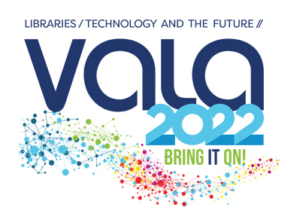
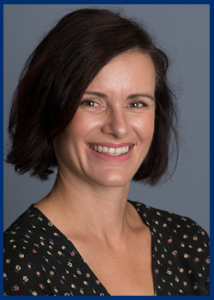 Danielle Johnson has worked in academic institutions since 2000. Her early library work life was spent coordinating a combined library reference/IT help desk and working with students teaching information literacy skills and digital library products and platforms, before transitioning into library website coordination. In 2008, she left libraries to practice the dark arts of university IT, spending seven years in various roles including website administrator, functional analyst, web development project manager, and service manager. During that time, she completed her Master’s degree in information and knowledge management. Now, as Manager Digital Experience Deakin University, she leads a cross-functional team engaged in UX research and testing, digital content management, experience design and front-end development, applications and integrations, digital project management and emerging technologies. Her team aims to provide consistent, high-quality, and scalable digital solutions for library users. In her role, she’s worked to establish a collaborative, end-to-end approach to identifying, designing and developing and managing experiences. Danielle is future-focussed, and actively seeks opportunities to deliver digital experiences that extend Deakin’s reputation as a driver of leading-edge innovation. At the same time, she has a keen eye on delivering practical, continuous improvement to today’s library experience challenges.
Danielle Johnson has worked in academic institutions since 2000. Her early library work life was spent coordinating a combined library reference/IT help desk and working with students teaching information literacy skills and digital library products and platforms, before transitioning into library website coordination. In 2008, she left libraries to practice the dark arts of university IT, spending seven years in various roles including website administrator, functional analyst, web development project manager, and service manager. During that time, she completed her Master’s degree in information and knowledge management. Now, as Manager Digital Experience Deakin University, she leads a cross-functional team engaged in UX research and testing, digital content management, experience design and front-end development, applications and integrations, digital project management and emerging technologies. Her team aims to provide consistent, high-quality, and scalable digital solutions for library users. In her role, she’s worked to establish a collaborative, end-to-end approach to identifying, designing and developing and managing experiences. Danielle is future-focussed, and actively seeks opportunities to deliver digital experiences that extend Deakin’s reputation as a driver of leading-edge innovation. At the same time, she has a keen eye on delivering practical, continuous improvement to today’s library experience challenges. Kathryn Martin has worked in the academic library environment for many years in various capacities. She completed her Library Science degree in 1997, and later Prince2 and Agile project management certificate in 2009. She has worked in most areas of the library including the loans desk, acquisitions, cataloguing, reference, lead the I.L.M.S. team, managed the audio-visual department, and held her current position as manager of the Discovery Technologies team since 2014. Kathryn was chair of the Australasian Innovative User Group from 2011 – 2012. Her responsibilities include the maintenance and improvement of the discovery layer, configuration, problem analysis and resolution of library services platform issues, facilitation of integrations with these services and ensuring that system architecture enables a positive user experience for clients. She has also managed several large projects, including cataloguing of significant slide and pamphlet collections early in her career, and more recently transitioning the library to a new version of the I.L.M.S., assisting the I.T. department with deploying various significant technology updates to Library workstations and implementing various integrations with the library system. Kathryn has a client focus and a passion for innovation in this complex and ever-changing technology driven environment.
Kathryn Martin has worked in the academic library environment for many years in various capacities. She completed her Library Science degree in 1997, and later Prince2 and Agile project management certificate in 2009. She has worked in most areas of the library including the loans desk, acquisitions, cataloguing, reference, lead the I.L.M.S. team, managed the audio-visual department, and held her current position as manager of the Discovery Technologies team since 2014. Kathryn was chair of the Australasian Innovative User Group from 2011 – 2012. Her responsibilities include the maintenance and improvement of the discovery layer, configuration, problem analysis and resolution of library services platform issues, facilitation of integrations with these services and ensuring that system architecture enables a positive user experience for clients. She has also managed several large projects, including cataloguing of significant slide and pamphlet collections early in her career, and more recently transitioning the library to a new version of the I.L.M.S., assisting the I.T. department with deploying various significant technology updates to Library workstations and implementing various integrations with the library system. Kathryn has a client focus and a passion for innovation in this complex and ever-changing technology driven environment.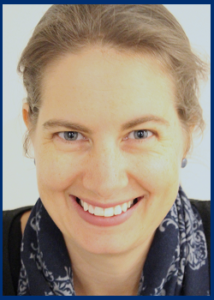 Nicole Kearney manages the Australian branch of the Biodiversity Heritage Library (BHL) and leads the BHL’s global Persistent Identifier Working Group (Team #RetroPIDs). She is a zoologist and science communicator striving to link all biodiversity knowledge online and to make the world’s biodiversity literature openly accessible and discoverable for everyone.
Nicole Kearney manages the Australian branch of the Biodiversity Heritage Library (BHL) and leads the BHL’s global Persistent Identifier Working Group (Team #RetroPIDs). She is a zoologist and science communicator striving to link all biodiversity knowledge online and to make the world’s biodiversity literature openly accessible and discoverable for everyone. 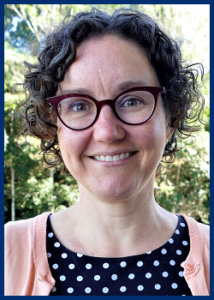
 moving to the systems role, Margie was responsible for copyright and scholarly publications . With over 30 years of experience in libraries, Margie holds a Bachelor of Information Science majoring in IT from Charles Sturt University.
moving to the systems role, Margie was responsible for copyright and scholarly publications . With over 30 years of experience in libraries, Margie holds a Bachelor of Information Science majoring in IT from Charles Sturt University.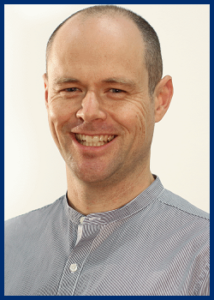 Justin Kelly is the 2019 recipient of the Digital Fellowship from the State Library of Victoria. During his fellowship, Justin examined the use state-of-the-art Artificial Intelligence technologies to enrich and bring new depth and possibilities to the Library’s digital image collection focused on the various facets of accessibility. Resulting from the fellowship, Justin has developed new open source AI based technology focused specially for the GLAMR sector. Justin will discuss the new technology and it’s practical application of AI for enhancing the accessibility for a libraries digital collections. Justin is currently the Business Data Analyst at State Library of Victoria, Justin has a passion for data visualisation and analytics have lead a number of VALA TechCamp workshops on data visualisation with Tableau and PowerBI. Prior to working at the State Library of Victoria, Justin was a Data Engineer and Web Developer at Swinburne University, focusing on data warehousing, machine learning, visualisation, computer vision and cloud technologies. These skills combined with his years of experience with library systems provide a unique understanding of library technologies and also cutting-edge cloud technologies.
Justin Kelly is the 2019 recipient of the Digital Fellowship from the State Library of Victoria. During his fellowship, Justin examined the use state-of-the-art Artificial Intelligence technologies to enrich and bring new depth and possibilities to the Library’s digital image collection focused on the various facets of accessibility. Resulting from the fellowship, Justin has developed new open source AI based technology focused specially for the GLAMR sector. Justin will discuss the new technology and it’s practical application of AI for enhancing the accessibility for a libraries digital collections. Justin is currently the Business Data Analyst at State Library of Victoria, Justin has a passion for data visualisation and analytics have lead a number of VALA TechCamp workshops on data visualisation with Tableau and PowerBI. Prior to working at the State Library of Victoria, Justin was a Data Engineer and Web Developer at Swinburne University, focusing on data warehousing, machine learning, visualisation, computer vision and cloud technologies. These skills combined with his years of experience with library systems provide a unique understanding of library technologies and also cutting-edge cloud technologies. Cameron Atkinson has been working in libraries for twelve years. For the past four he has been lucky enough to work in Trove. Using COVID as an excuse he has spent the past two years finding workflows where everyone social distances, and no one has to touch records.
Cameron Atkinson has been working in libraries for twelve years. For the past four he has been lucky enough to work in Trove. Using COVID as an excuse he has spent the past two years finding workflows where everyone social distances, and no one has to touch records. Michael Spikmans has completed a Bachelor of Information and Communication Technology and a Master of Science in Communication and Information Sciences at Tilburg University, The Netherlands. In the Netherlands, Michael has worked on the Unobtrusive Smart Environments for Independent Living project funded by the European Union and worked as a librarian at the Public Library of Eindhoven. Michael is currently the Service Development Manager at the Northern Beaches Library Services where he manages the Technology Team, Forestville Library and the Forestville 24/7 transformation project. He has experience in project management, programming, data mining, visualisation and analysis, User Experience design, financial management, change management and digital literacy training.
Michael Spikmans has completed a Bachelor of Information and Communication Technology and a Master of Science in Communication and Information Sciences at Tilburg University, The Netherlands. In the Netherlands, Michael has worked on the Unobtrusive Smart Environments for Independent Living project funded by the European Union and worked as a librarian at the Public Library of Eindhoven. Michael is currently the Service Development Manager at the Northern Beaches Library Services where he manages the Technology Team, Forestville Library and the Forestville 24/7 transformation project. He has experience in project management, programming, data mining, visualisation and analysis, User Experience design, financial management, change management and digital literacy training.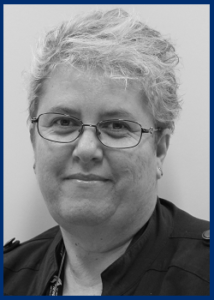 Bronwen Thomas is an engaged, high performing, self-motivated librarian, offering in-depth varied and diverse expertise gained through 28 years of successful contributions across several core library areas in academic libraries. Her current responsibilities as Manager, Content & Discovery at the University of Newcastle, cover a breadth and depth of services – including information resource management in print and digital collections, collection development, course reading list coordination, resource sharing and acquisition, publishing, and scholarly communication. As a motivating leader with a history of building and managing high performing teams, she enjoys inspiring people to be passionate about data quality. Bronwen places collaboration at the heart of all that she does and obtains satisfaction through identifying complex issues and integrating innovative solutions to achieve delivery of strategic and operational priorities. Central to her client service focussed delivery is to provide equitable and seamless access to relevant, open, and connected scholarly content for her University and the wider community.
Bronwen Thomas is an engaged, high performing, self-motivated librarian, offering in-depth varied and diverse expertise gained through 28 years of successful contributions across several core library areas in academic libraries. Her current responsibilities as Manager, Content & Discovery at the University of Newcastle, cover a breadth and depth of services – including information resource management in print and digital collections, collection development, course reading list coordination, resource sharing and acquisition, publishing, and scholarly communication. As a motivating leader with a history of building and managing high performing teams, she enjoys inspiring people to be passionate about data quality. Bronwen places collaboration at the heart of all that she does and obtains satisfaction through identifying complex issues and integrating innovative solutions to achieve delivery of strategic and operational priorities. Central to her client service focussed delivery is to provide equitable and seamless access to relevant, open, and connected scholarly content for her University and the wider community. Virginia Walker is currently the Coordinator Scholarly Publishing at the University of Newcastle in New South Wales, Australia. Virginia has worked in Research Support Services for over 8 years and provided a range of research services to support academic staff and higher degree research students at various stages of the research lifecycle. She enjoys playing an essential role in the open scholarship landscape at the University of Newcastle, and has provided extensive support to the maintenance, review and upgrade of the University of Newcastle systems underlying research support. Contributing to the development and implementation of university-wide services including eResearch services, Virginia is passionate about quality metadata and the role it plays in working to increase the visibility, system interoperabilty and discovery of research.
Virginia Walker is currently the Coordinator Scholarly Publishing at the University of Newcastle in New South Wales, Australia. Virginia has worked in Research Support Services for over 8 years and provided a range of research services to support academic staff and higher degree research students at various stages of the research lifecycle. She enjoys playing an essential role in the open scholarship landscape at the University of Newcastle, and has provided extensive support to the maintenance, review and upgrade of the University of Newcastle systems underlying research support. Contributing to the development and implementation of university-wide services including eResearch services, Virginia is passionate about quality metadata and the role it plays in working to increase the visibility, system interoperabilty and discovery of research.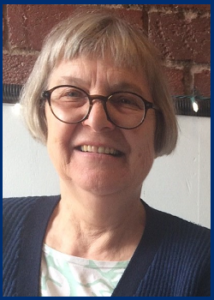 Ingrid trained as a Librarian but has worked in the world of copyright for 20 years. She is currently working as the Copyright Officer at Victoria University where she liaises with Scholarly Information Librarians and academics to ensure copyright compliance within the university teaching environment. Ingrid joined the University in 2012 and very much enjoys her role; she has a Masters in Museum Studies and Cultural Policy which helps to guide some of her day to day work. Her past working experience was at Museum Victoria working with exhibition images.. In this online project she collaborated with a Learning Designer and Librarian to produce this interactive training module.
Ingrid trained as a Librarian but has worked in the world of copyright for 20 years. She is currently working as the Copyright Officer at Victoria University where she liaises with Scholarly Information Librarians and academics to ensure copyright compliance within the university teaching environment. Ingrid joined the University in 2012 and very much enjoys her role; she has a Masters in Museum Studies and Cultural Policy which helps to guide some of her day to day work. Her past working experience was at Museum Victoria working with exhibition images.. In this online project she collaborated with a Learning Designer and Librarian to produce this interactive training module.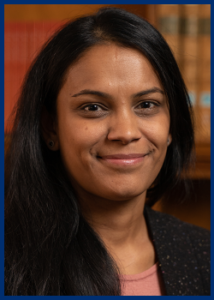 Samantha Narcis is the Senior Manager, Client Services at the University of Adelaide Library and has been in this role since June 2018. After more than 15 years of working in various Human Resources (HR) roles both overseas in Dubai and in Adelaide, Sam took a leap of faith going from providing HR advice to business leaders, to providing strong and positive operational leadership in a different industry- the world of Academic Libraries. Sam believes her love of reading and books might have helped with the transition just a bit! Sam currently leads the Library’s Client Services team in delivering key front-line services to Library users and facilitating access to the Library as a safe and welcoming space spanning across 3 campuses. Her portfolio includes a diverse set of responsibilities carried out by the front-line Service Delivery team, “”Ask Library””, the Metadata Project team and the Collections and Facilities team. Sam is a firm advocate for a One Library ethos and with her team strives to put the user experience at the forefront of everything they do (within the University of Adelaide Library).
Samantha Narcis is the Senior Manager, Client Services at the University of Adelaide Library and has been in this role since June 2018. After more than 15 years of working in various Human Resources (HR) roles both overseas in Dubai and in Adelaide, Sam took a leap of faith going from providing HR advice to business leaders, to providing strong and positive operational leadership in a different industry- the world of Academic Libraries. Sam believes her love of reading and books might have helped with the transition just a bit! Sam currently leads the Library’s Client Services team in delivering key front-line services to Library users and facilitating access to the Library as a safe and welcoming space spanning across 3 campuses. Her portfolio includes a diverse set of responsibilities carried out by the front-line Service Delivery team, “”Ask Library””, the Metadata Project team and the Collections and Facilities team. Sam is a firm advocate for a One Library ethos and with her team strives to put the user experience at the forefront of everything they do (within the University of Adelaide Library).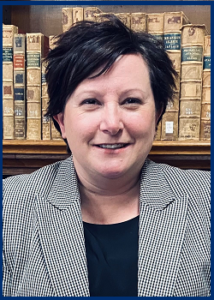 Jaime Royals is currently the Senior Manager, Collections & Access Services at the University of Adelaide. Jaime has worked in several roles at the University Library including as a Liaison Librarian and as the Manager of Learning and Teaching Innovation. She has a keen interest in developing and innovating library services in collaboration with stakeholders, in line with best practice and with an evidence-based approach. She is also partial to terrible dad jokes!”
Jaime Royals is currently the Senior Manager, Collections & Access Services at the University of Adelaide. Jaime has worked in several roles at the University Library including as a Liaison Librarian and as the Manager of Learning and Teaching Innovation. She has a keen interest in developing and innovating library services in collaboration with stakeholders, in line with best practice and with an evidence-based approach. She is also partial to terrible dad jokes!”